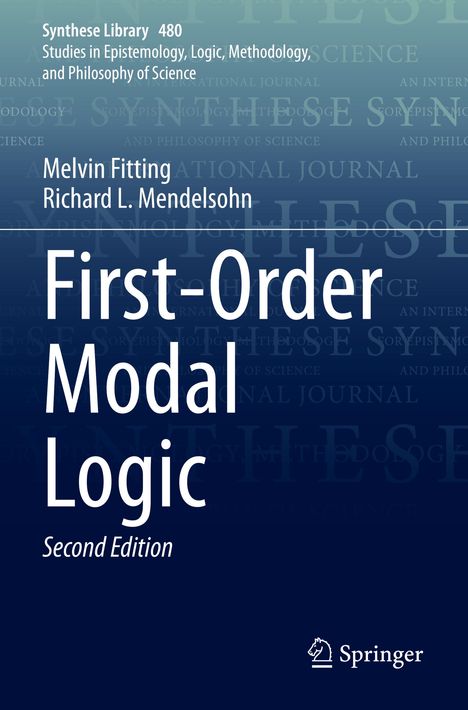Melvin Fitting: First-Order Modal Logic, Kartoniert / Broschiert
First-Order Modal Logic
(soweit verfügbar beim Lieferanten)
- Verlag:
- Springer, 10/2024
- Einband:
- Kartoniert / Broschiert, Paperback
- Sprache:
- Englisch
- ISBN-13:
- 9783031407161
- Artikelnummer:
- 12033643
- Umfang:
- 480 Seiten
- Nummer der Auflage:
- 24002
- Ausgabe:
- Second Edition 2023
- Gewicht:
- 721 g
- Maße:
- 235 x 155 mm
- Stärke:
- 26 mm
- Erscheinungstermin:
- 19.10.2024
- Hinweis
-
Achtung: Artikel ist nicht in deutscher Sprache!
Weitere Ausgaben von First-Order Modal Logic |
Preis |
|---|
Klappentext
This revised edition of the highly recommended book "First-Order Modal Logic", originally published in 1998, contains both new and modified chapters reflecting the latest scientific developments. Fitting and Mendelsohn present a thorough treatment of first-order modal logic, together with some propositional background. They adopt throughout a threefold approach. Semantically, they use possible world models; the formal proof machinery is tableaus; and full philosophical discussions are provided of the way that technical developments bear on well-known philosophical problems. The book covers quantification itself, including the difference between actualist and possibilist quantifiers; equality, leading to a treatment of Frege's morning star / evening star puzzle; the notion of existence and the logical problems surrounding it; non-rigid constants and function symbols; predicate abstraction, which abstracts a predicate from a formula, in effect providing a scoping function for constants andfunction symbols, leading to a clarification of ambiguous readings at the heart of several philosophical problems; the distinction between nonexistence and nondesignation; and definite descriptions, borrowing from both Fregean and Russellian paradigms.
Review of the First Edition:
"This Text is an excellent and most useful volume. It is pitched correctly: the exercises are just right... It sets a high standard for anything following. It is to be highly recommended." (Bulletin of Symbolic Logic, 8: 3)
Biografie (Richard L. Mendelsohn)
Richard L. Mendelsohn is Professor of Philosophy at Lehman College and the Graduate School, the City University of New York.

